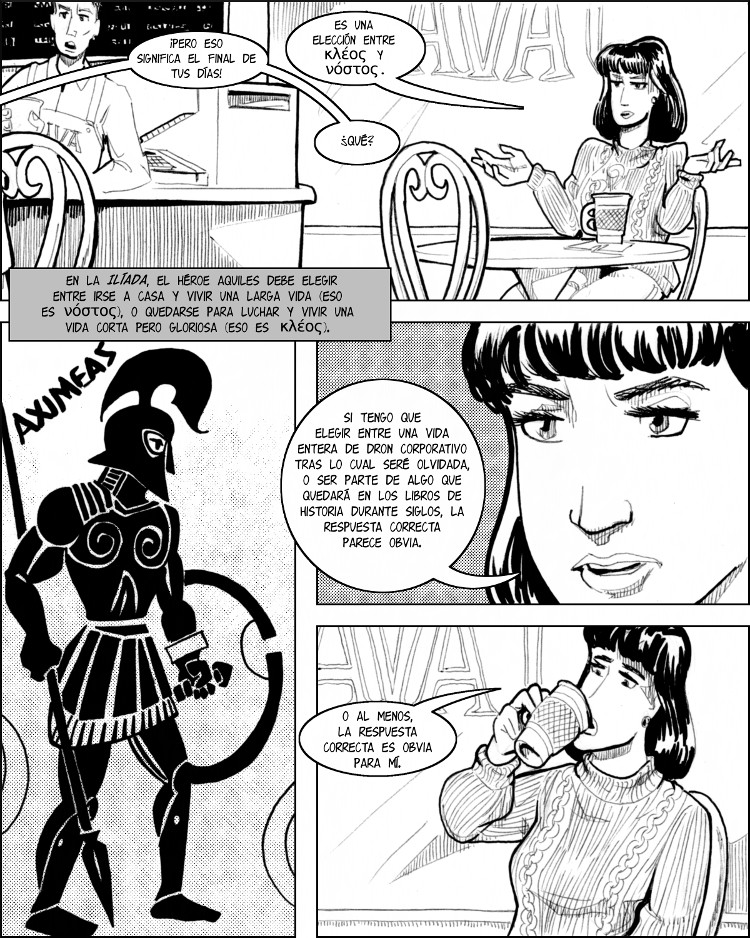
This work is licensed under a Creative Commons Attribution-NonCommercial-ShareAlike 4.0 International License.
PAGE 29 (Four panels)
Panel 1: Daphne, in the interview, now looking serious and pensive.
Unseen interviewer (out-of-panel balloon) (1): But that means the end of you!
Translation (1): ¡Pero eso significa el final de tus días!
Daphne (2): It is a choice between κλέος and νόστος.
Comment (2): The Greek text above (κλέος, νόστος) should, if possible, be left untranslated and untransliterated.
Translation (2): Es una elección entre κλέος y νόστος.
Unseen interviewer (out-of-panel balloon) (3): What?
Translation (3): ¿Qué?
Panel 2: View of a vase painting showing the Greek hero Achilles.
CAPTION – DAPHNE NARRATING (4): In the Iliad, the hero Achilles faces a choice between either going home and living a long life – that’s νόστος – or staying to fight and living a short but glorious life – that’s κλέος.
Comment (4): See Comment (2) above for how to treat the Greek text.
Translation (4): En la Ilíada, el héroe Aquiles debe elegir entre irse a casa y vivir una larga vida (eso es νόστος), o quedarse para luchar y vivir una vida corta pero gloriosa (eso es κλέος).
Panel 3: Daphne, leaning forward to engage more closely her unseen interviewer.
Daphne (5): Given the choice between a either a lifetime as a corporate drone after which I shall be forgotten or being part of something that will be in history books for centuries, the right answer seems obvious.
Translation (5): Si tengo que elegir entre una vida entera de dron corporativo tras lo cual seré olvidada, o ser parte de algo que quedará en los libros de historia durante siglos, la respuesta correcta parece obvia.
Panel 4: Daphne sitting back, taking a sip from her cup of coffee.
Daphne (6): Or at least, the right answer is obvious to me.
Translation (6): O al menos, la respuesta correcta es obvia para mí.
![]()
![]()
![]() Carnada (Español/Versión de página larga)
Carnada (Español/Versión de página larga)
Carnada (Español/Versión deslizante)

